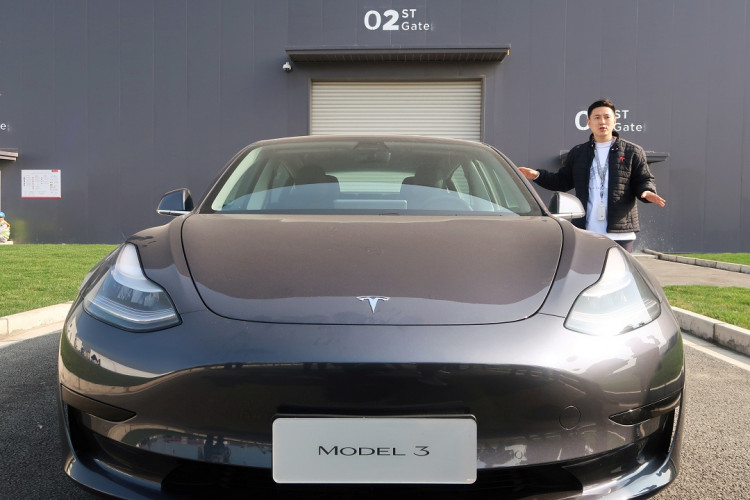Just days after it delivered its first batch of built-in-China Tesla Model 3 units to its employees in China, the electric vehicle firm has now reportedly cut its prices for the particular model that is built at its Shanghai Gigafactory. Earlier in the week, Tesla delivered 15 new Tesla Model 3 vehicles to employees during a grand ceremony at the Shanghai plant.
On the company's Chinese website, Tesla has slashed the prices of its Model 3 from 355,800 yuan ($51,000) to 328,800 yuan ($46,400). The official prices in the coming months are expected to drop even further as the government subsidies given to the company takes effect.
Tesla is expected to drop the cost of its new Tesla Model 3 built at its Shanghai factor to as low as 299,050 yuan, or about $42,900 in the coming months. If true, the price drop represents a staggering 16 percent discount from its originally announced sticker price for the Chinese market.
Elon Musk's electric vehicle firm originally broke ground on its first overseas factory in Shanghai just a year ago. The company managed to complete the facility in record time, thanks to strong support from the Chinese government and local agencies. The plant was partially finished and operable within just 10 months since the company broke ground.
With the plant nearing completion, Tesla began taking in pre-orders for its new Model 3 fully electric vehicles in October of last year. The pre-order was highly successful with thousands of Chinese consumers placing deposits for their units.
Tesla's gamble to set up its own manufacturing plant in the world's largest car market has paid off as it is expected to become a major player in the industry in the coming years. The company previously stated that it eventually intends to make more than 500,000 Tesla vehicles in Shanghai each year to meet the growing demand in the country.
Musk himself had stated that its new Chinese factory would become its "template for future growth" in the region, one that will hopefully cement its presence in China and its neighboring markets.
Tesla's decision to build locally was partly instigated by the escalating trade tensions between China and the United States last year. By building on Chinese soil, Tesla can effectively avoid the tit-for-tat tariffs imposed by the two nations against each other. This allowed it to price its products competitively against local players such as Nio and BYD.
While the Shanghai Gigafactory is Tesla's first-ever overseas manufacturing facility, it certainly will not be the last. Musk recently announced that his company is planning to build yet another Gigafactory in Berlin, one that will produce electric vehicles specifically for the European market.






